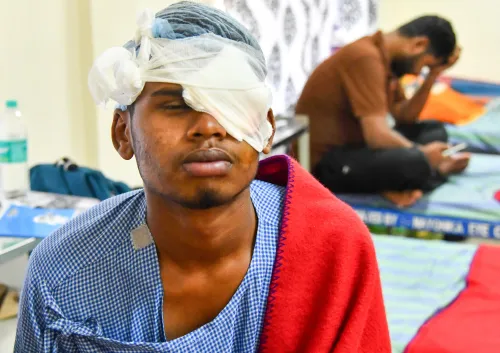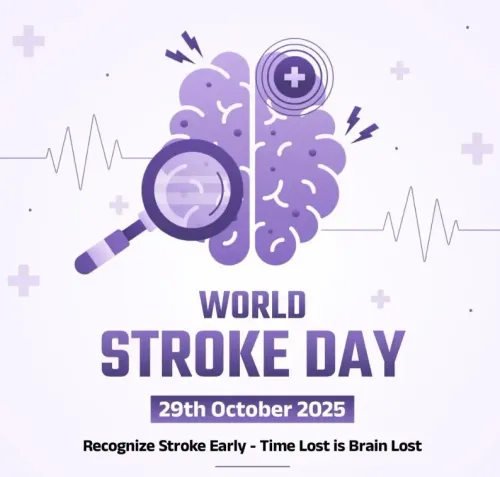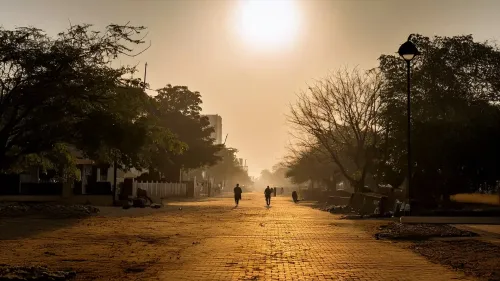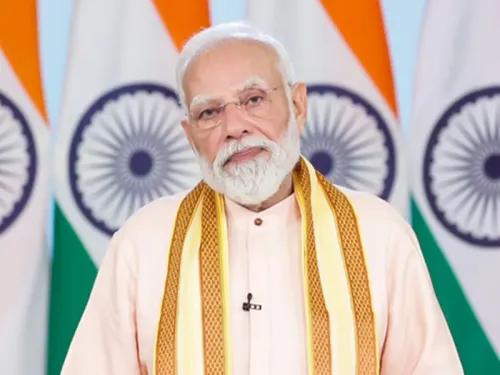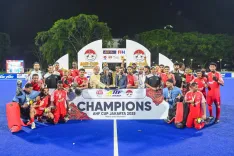Can early identification and support empower kids with Dyslexia to succeed?
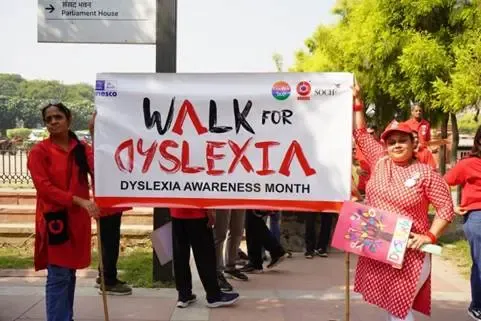
Synopsis
Key Takeaways
- Early detection of Dyslexia is crucial for effective support.
- Awareness fosters acceptance and understanding of learning differences.
- Programs like PRASHAST 2.0 aid in identifying children with learning disabilities.
- Inclusive education benefits all children, not just those with learning challenges.
- Parents and teachers play a vital role in supporting children with Dyslexia.
New Delhi, Oct 28 (NationPress) Dyslexia is a unique method of acquiring knowledge, articulated Sanjay Kumar, Secretary of the Department of School Education and Literacy. He emphasized that with early detection and appropriate assistance, children facing this challenge can achieve great success.
Kumar addressed the participants at the ‘Walk for Dyslexia 2025’ in the national capital, where the Rashtrapati Bhawan and Secretariat illuminated in red, symbolizing the cause. This event was organized nationwide by the Changeinkk Foundation, UNESCO MGEIP, Orkids Foundation, and Soch Foundation to elevate awareness on Dyslexia.
Dyslexia, a learning disability affecting reading, writing, and spelling, is rooted in the brain's language processing differences. October is commemorated as Dyslexia Awareness Month.
Kumar highlighted the importance of fostering awareness and acceptance surrounding Specific Learning Disabilities (SLDs), particularly Dyslexia, which remains one of the most prevalent yet misconceived learning differences among the youth.
“Every child has a unique learning style. Dyslexia is not a hindrance but rather an alternative way of grasping and conveying knowledge. With timely identification, support, and compassion, children with Dyslexia can reach impressive milestones. Today’s event represents a call for awareness, empathy, and inclusion,” stated the Secretary.
He also pointed out the vital function of PRASHAST 2.0—a mobile application for screening developed by NCERT—to assist schools in identifying children with disabilities, including Dyslexia, at an early stage.
“Prompt diagnosis, paired with increased awareness among educators, parents, and the broader community, can significantly impact ensuring that every child with Dyslexia receives the necessary support and opportunities to thrive in an inclusive educational framework,” Kumar remarked.
The Department of School Education and Literacy, under the Samagra Shiksha Scheme, has initiated numerous strategies to enhance early screening, identification, and assistance for children with SLDs, including Dyslexia.
These initiatives encompass the rollout of PRASHAST 2, the integration of specialized modules on inclusive education within the Integrated Teacher Education Programme (ITEP) to bolster pre-service teacher training.
Additionally, the government is providing tailored learning support, including educational materials, essential aids and assistive devices (such as text-to-speech tools), as well as therapeutic assistance for children with SLD (Dyslexia).
Block-level screening and identification camps are also organized across States and UTs to ensure timely diagnosis and certification.
Globally, it is estimated that Dyslexia affects one in five individuals. In India, approximately 12.15% of children with Special Needs (CwSN) enrolled in schools have been reported to have SLDs, which can include children with Dyslexia, according to government data.

